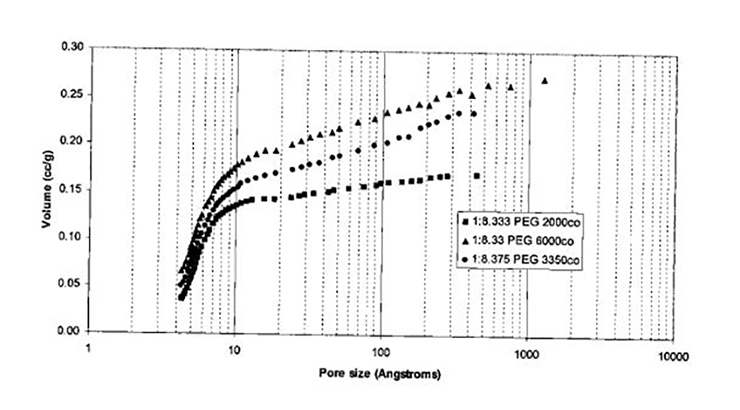Synthesis of Mesoporous Carbon with Tunable Porosity
ID# 2004-3007
Technology Summary
A method to synthesize microporous, mesoporous and macorporous carbon derived from pyrolysis of block copolymers. Block colpolymers consist of two blocks of carbonizing polymer such as polyfurfuryl alcohol and a pyrolyzing polymer such as polyethylene glycol. The copolymers were synthesized by reacting polyfurfuryl alcohol and polyethylene glycol diacid together such that they are covalently bonded by the formation of an ester linkage. The block copolymer upon pyrolysis undergoes reaction induced phase seperation to produce microporous and meso- or macroporous carbon. The pore size for the carbon can be tuned by changing the chain length of the pyrolyzing polymer block.
Application & Market Utility
The novel porous carbons are excellent candidates for several applications that include use as electrode materials for batteries and capacitors in energy related industries. Ultrafiltration membranes for bioseparations in pharmaceutical industries. Adsorbents for gas storage in chemical industries. Catalyst supports in fuel cells, reformer industy and petrochemical industries.
Next Steps
U.S. patent 8,648,009 has been issued. Proof of concept verified; seeking licensing oppurtunities.

